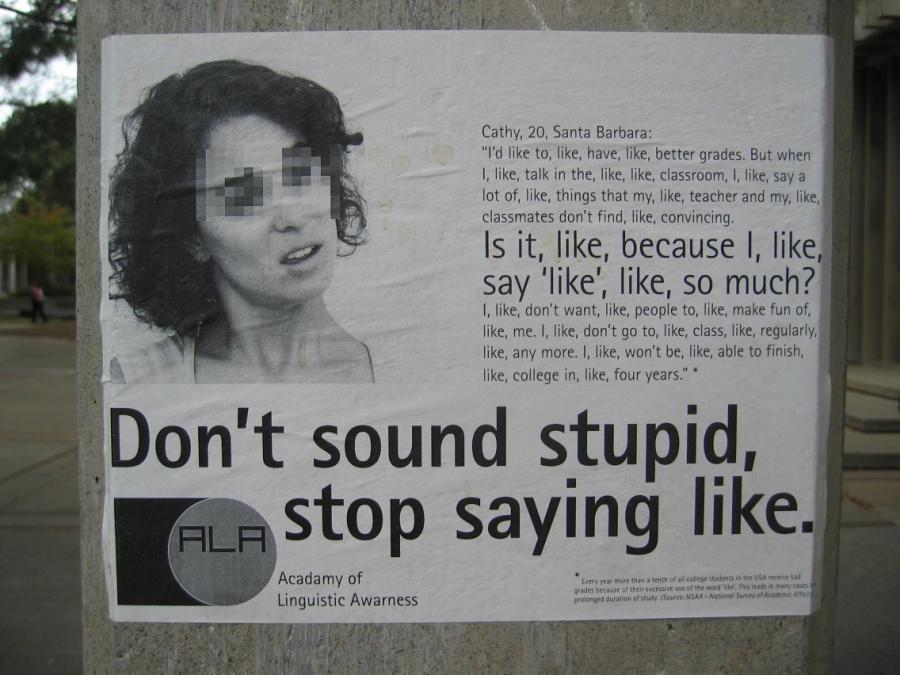 It's okay, we're all guilty of this one. It's highly contagious and hard to shake, and a lot of people don't even realize how they use the word 'like' as a vocalized pause until they hear a recording of their conversation played back to them. I think it's especially funny that searching for "the word like" on Google lands you on pages that discuss how to permanently remove this nasty one from your vocabulary for good.
It's okay, we're all guilty of this one. It's highly contagious and hard to shake, and a lot of people don't even realize how they use the word 'like' as a vocalized pause until they hear a recording of their conversation played back to them. I think it's especially funny that searching for "the word like" on Google lands you on pages that discuss how to permanently remove this nasty one from your vocabulary for good.I apologize in advance if this post causes you to start counting or focusing on how many times people you are listening to use 'like' in their sentences.
Many people, including myself, associate 'like,' when used as a vocal pause as a replacement for "uh", "um", and other weird things we say when we are pausing to think about what to say next, with teenager or childish methods of communication. Excessive use of this word has negative connotations that reach back to that of Shaggy on "Scooby Doo" or the Valley girls in the movie "Clueless." Luckily, it has not yet worked as well on paper as it does in contemporary conversation. Consider the following examples of this word abuse:
1) And then I was like, "no way!"
2) That's like near State Street.
Would you take an article seriously if they wrote their thoughts like this? In the first example, "was like" replaces "said" or "screamed" or some verb that would give this sentence meaning. It doesn't make any sense! How did you resemble "no way" in any shape or form? In the second example, we see that 'like' can be omitted without any consequence. It really has no place in the sentence at all.
So why is 'like' so popular? Why has it become such a habit? There are interesting theories that say that today's youth never like to express their thoughts concretely, preferring instead to soften their expressions using a "fuzzy" word such as 'like.' Personally, I tend to use the word in this way when I get excited about an event that occurred and try to explain it to a group of friends as quickly as possible. I have also been told that when I am consciously trying to not say 'like' I sometimes come across as too serious or even suspicious, which makes this pet peeve even more of a mystery, since most dignitaries or orators never seem to let the word seep into their language.
I guess the real question is: will the baby boomer who might be your future boss appreciate how well your conversation matches that of a Valley girl? Don't get me wrong, Shaggy is a pretty cool cat, but we all know that hippie never got a real job!
Enough said.